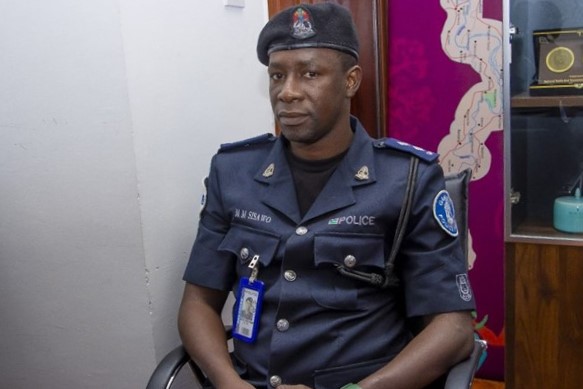By Mama A. Touray
In a recent press release, the Gambia Police Force clarified the nature of recent alleged murder cases, describing them as acts of domestic violence that occurred within private residences.
The release followed a publication by The Standard newspaper, which described the crimes recorded by the Gambia Police Force as “homicide.”
While clarifying the nature of the cases recorded between January 29 and February 1, 2025, the release stated that a critical aspect had been overlooked.
The Public Relations Officer of the Gambia Police Force, Modou Musa Sisawo, explained: “These cases are acts of domestic violence, occurring within private residences, behind closed doors, and among individuals with pre-existing personal relationships.”
Sisawo further elaborated that the cases referenced in The Standard‘s publication—such as the tragic deaths in Bansang, Wellingara, Dippa Kunda, and Sinchu Malado—were not random acts of violence. Nor were they incidents that could have been prevented through routine policing strategies such as patrols, checkpoints, or community surveillance.
“Rather, these were deeply personal conflicts that escalated into fatal violence within the confines of homes,” he said.
“The alleged murder in Wellingara took place inside the victim’s house. In Bansang Sukuru Kunda Allatentu, the case was allegedly between family members. The Dippa Kunda case involved a brother and sister, and the Sinchu Malado case was a domestic dispute between a husband and wife,” he added.
PRO Sisawo stated that The Standard newspaper, in its February 3 publication, reported that “The Gambia Police Force recorded four suspected murder cases” and referred to them as “homicides.”
Clarifying this, Sisawo said, “It is crucial to emphasize that these incidents were all domestic violence-related, not public or gang-related crimes that could have been intercepted by regular police patrols.”
He further stated in the release that it is important for the public to understand that while crime prevention remains the foremost responsibility of the police, “no police force in the world, no matter how advanced or well-equipped, can directly intervene in crimes that are conceived, planned, and executed within the privacy of homes.”
Domestic violence, by its very nature, he said, unfolds behind closed doors, away from public view, and often without any prior indication that an escalation to murder is imminent.
However, he highlighted the police force’s commitment to addressing domestic violence through community policing and sensitization to encourage early reporting of domestic disputes before they turn fatal, strengthening laws and enforcement against domestic violence to deter potential offenders, and working with social services and civil society organizations to provide support for at-risk individuals in abusive environments.




